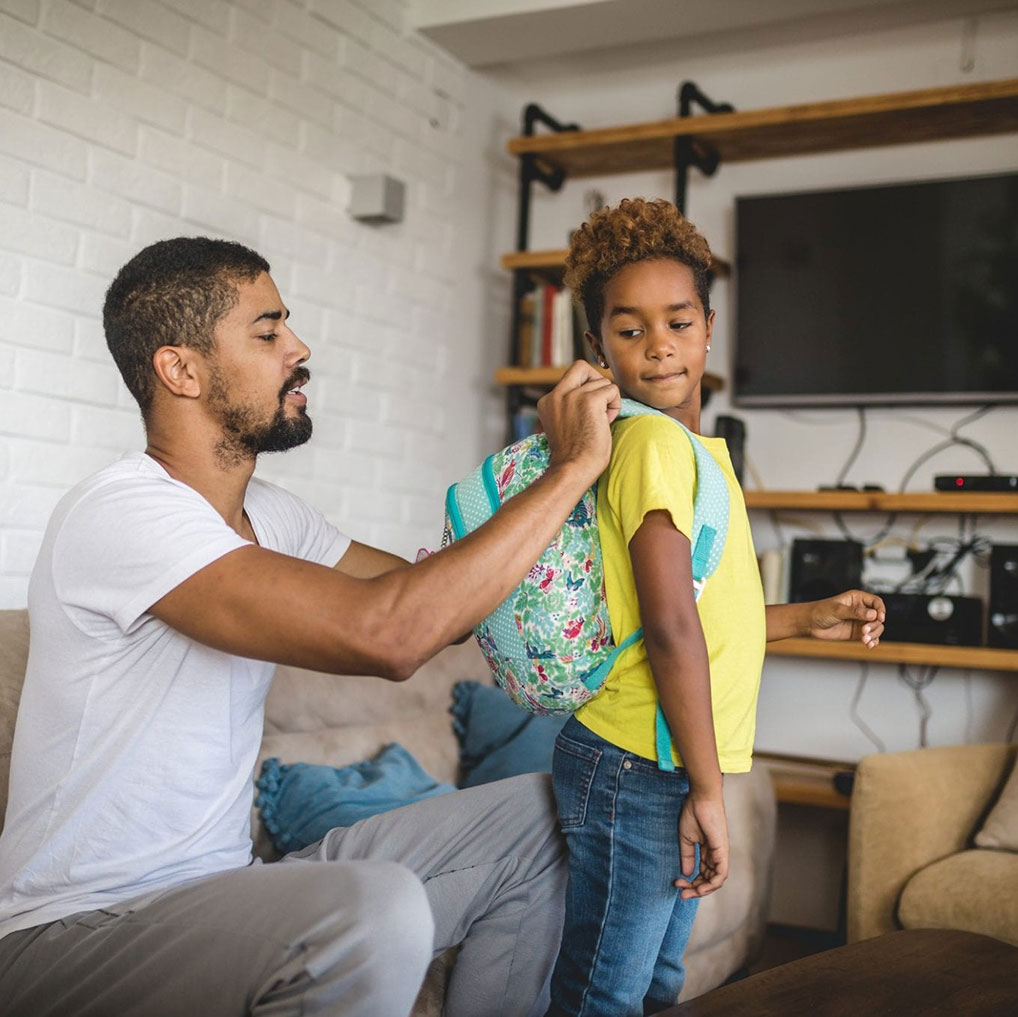Tips for Parents of Children with Autism Spectrum Disorder During the Coronavirus Pandemic

November 04, 2021
The management of autism spectrum disorder (ASD) often relies on routine and regularity, however the coronavirus (COVID-19) pandemic has massively impacted many families’ ability to provide this structure. Lifestyle changes including social distancing, remote learning, and self-quarantine, can certainly be challenging to any parent. For parents of children with special needs, specifically autism spectrum disorder (ASD), a disruption in a well-established day-to-day schedule can lead to fears of meltdowns and steps backward.
With the challenges brought forth by coronavirus, we asked Denise Aloisio, M.D., a developmental behavioral pediatrician who specializes in childhood ASD and is the medical director of The Child Evaluation Center at Hackensack Meridian K. Hovnanian Children’s Hospital to share some advice for parents of children with autism.
Set a Routine
Setting a routine or a schedule for the day can help any child and family, but it is particularly important for children who struggle with transitions. The change from learning at school to learning at home can be overwhelming for those with ASD.
To develop a schedule, a helpful exercise is to layout the “pre-coronavirus” routine, then identify 2 or 3 habits each day that the child and family can continue. Be sure to allow for more time to engage with each other and for breaks. Breaks are needed for parents and children to help relax the mind.
Create a Child-Friendly Visual Routine
Once a parent organizes their routine, a child-friendly visual schedule is a great tool for children with autism to have so that they know what to expect throughout the day, and can ease any anxiety caused by transitioning to the next activity. Break the day into small units and celebrate each accomplishment. Parents need to recognize that this is a very stressful time for everyone and should re-examine any expectations they may have for themselves and their child(ren).
Continue Therapy Services at Home
Pausing occupational, speech and physical therapies can be concerning to parents, who may fear that their child will revert back to destructive or aggressive behaviors. Parents should be sure to connect with their school and/or other therapists to determine if telehealth options are available to continue therapies at-home.
Parents can engage their children to support and motivate their child’s development of practical life skills. Encourage your child to help with some of these ideas:
- Preparing Meals – Pour a bowl of cereal, stir a yogurt bowl, or cook an egg
- Dressing – Practice the selection and action of getting dressed with little assistance
- Cleaning – Clean up after a meal or after a play activity
- Communication – Set time aside to give your child undivided attention to engage in conversation, and practice lessons from speech therapy
Set Home and Personal Boundaries
During the current quarantine, a parent may be both working and caring for their child(ren). To help your child(ren) separate fun time and work time, allocate certain areas for each. Without changing the overall look of one’s home, it may be helpful to establish activity zones in different areas of the home, such as mom/dad’s work space and the play room. This visual separation of space for specific activities will also help set nonverbal boundaries. Don’t get discouraged if there are interruptions in your work day, it will happen.
Other boundary setting strategies include using tools, like a kitchen timer or cellphone countdown, to designate uninterrupted work time. If one-on-one oversight of the child is required, try to utilize self-soothing therapies and quieter activities during set work hours. Dual working parents can also stagger their work schedules so that one parent is with the child while the other parent works.
Don’t Forget About Your Self Care
These are uncharted waters for everyone. Parents are doing their best to teach, work, and run a household. When doing all this with a child who has special needs, there is even more to contend with and navigate. Lawrence Booth, a teacher and program coordinator at East Mountain School at Hackensack Meridian Carrier Clinic, shares some tips to stay grounded and take care of yourself.
- Routine is everything. Make it your own. Figure out what you need to schedule first (such as work from home) and then frame your child’s plan around it. What works for you may be different than someone else.
- Be patient. Success doesn’t come immediately. Stick to your new routine, remain calm, and be firm. Eventually a child will know their parent has become a ‘solid object’ in new parts of their day—meaning a permanent and consistent figure amidst all the changes.
- Use visual cues to evoke happy memories. Pull out a photo album or have a family video playing in the background, with the sound off. These nonverbal cues remind kids of a happier time and can help calm them.
- Tap into resources. Rely on family and friends for support. Don’t be afraid to try something different or ask questions. Connect with parents who can relate via virtual support groups.
- Don’t be judgmental of yourself. This is not easy, it will take time, and you’re doing the best you can with the resources available.
“Families of a child with ASD are strong and resourceful. Most importantly, parents need to remember their children are resilient and will weather this challenge also,” said Dr. Aloisio.
The material provided through HealthU is intended to be used as general information only and should not replace the advice of your physician. Always consult your physician for individual care.
Find a doctor near me
Relieving Pain From Heavy Backpacks

A backpack that is too heavy for your child can cause back pain. Our pediatric orthopedic experts share how to prevent this issue and alleviate pain.
Coronavirus and Kids: Symptoms and Who’s at Risk

Coronavirus in Kids: Learn symptoms, risks, and when to seek care from Drs. Meli and Terrin. Protect your child's health.
Find a doctor near me

How Isolation Can Affect Cognitive Function
Combat isolation's impact on cognitive function. Dr. Kera offers tips for improved brain health & connection. Learn strategies to boost memory & focus.

Why Kids Need Vitamin D Supplements in the Winter
Kids need vitamin D in winter. Learn why supplements are important for bone health and how much your child needs. Consult your doctor.

Can Melatonin Gummies Help Kids Sleep?
Help your child sleep better. Learn about melatonin gummies for kids from pediatric sleep specialists. Get advice & improve bedtime habits.

How and When To Get Rid of the Pacifier
Stop Pacifier Use: Age-appropriate tips to help your child ditch the binky and transition smoothly. Learn effective strategies now.
